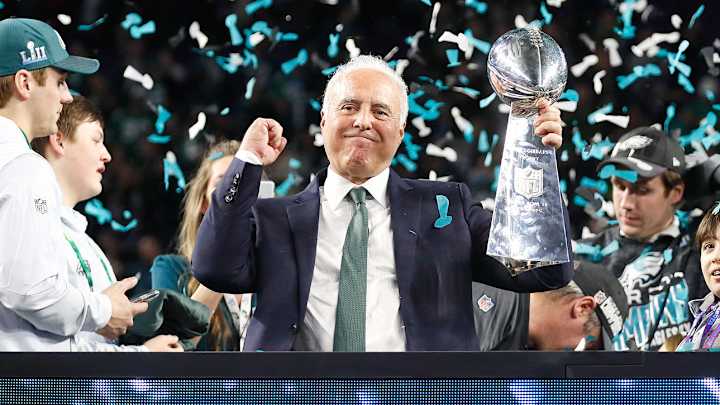Why the Eagles Are Committed to Autism Awareness, and How the Team Is Taking Action

This story appears in the June 18, 2018 issue of SPORTS ILLUSTRATED. To subscribe, click here.
In our society, professional sports franchises operate on a unique platform. They have the power to bridge gaps and bring communities together. They foster a deep sense of pride and respect for the cities they call home. Most importantly, this distinct platform affords them the opportunities and resources to cultivate positive, fundamental change. The power of sport has the extraordinary ability to transcend what happens on the field and address some of the key issues we face on a daily basis.
Take autism spectrum disorder, for example. It has become one of the fastest-growing developmental disorders in the country. Autism is a neurodevelopmental disability that affects typical brain development. It has no bias and touches every economic, racial and gender grouping.
Historically, autism has been very challenging to treat because it manifests itself in varying degrees. A new study conducted by The Centers for Disease Control and Prevention reveals that as recently as this past April, autism prevalence has increased by 15%, changing the previous statistic of one in 68 children to one in 59. Just take a moment to think about that.
One might assume that a national health issue of this magnitude would be met with large-scale private and public funding, but that is not the case. In fact, despite its growing prevalence, autism has been commonly underfunded and underresearched.
You may ask why the Eagles are so committed to prioritizing autism research. My personal connection is the reason I began this journey, but what continuously motivates me is knowing that families are in need of real help. In my experience, football has always been a great unifier. So I thought to myself, How can I leverage the Eagles’ brand and the ability to bring people together in a way that will help drive critical resources and funding to autism?
This led to the creation of the Eagles Autism Challenge—our team’s signature cycling and 5K run/walk charity event dedicated to raising funds for innovative autism research. It is extremely difficult for a single organization to address the complex nature of autism. With our platform, along with some of the world’s leading institutions, we felt like this initiative could advance scientific breakthroughs and establish Philadelphia as a hub for autism research and care.
After a year of planning and coordination, the inaugural Eagles Autism Challenge commenced on May 19 at Lincoln Financial Field. More than 3,300 participants came out to bike, run and walk with our team to raise funds for autism research. That day was both inspirational, from the standpoint of how many people answered our call to action, and aspirational because of the research breakthroughs we hope to achieve. We are all on the same journey, and we are stronger when we come together.
More than $2.5 million was raised by the Challenge this year for autism research, which is a remarkable start for any first-year fund-raising effort. With time, our hope is that the Eagles Autism Challenge will be a signature event for funding autism research.
We know this will not happen overnight or without others who share the same vision. This is bigger than me, the Philadelphia Eagles or our city. We must collectively work together to shift from autism awareness to action. This will require bold research initiatives whose results can be shared both nationally and globally. It’s an ambitious endeavor, and it will take the very best scientific minds to make the transformational impact we seek.
As a professional football team, we take our responsibility to the community very seriously. The overwhelming response and support we received in Year One was nothing short of amazing, and we are hopeful that what we are doing here will motivate others to join us. Reflecting back, this past year will not only tell the story of our Super Bowl season but also how we began to positively impact the lives of those affected by autism.
